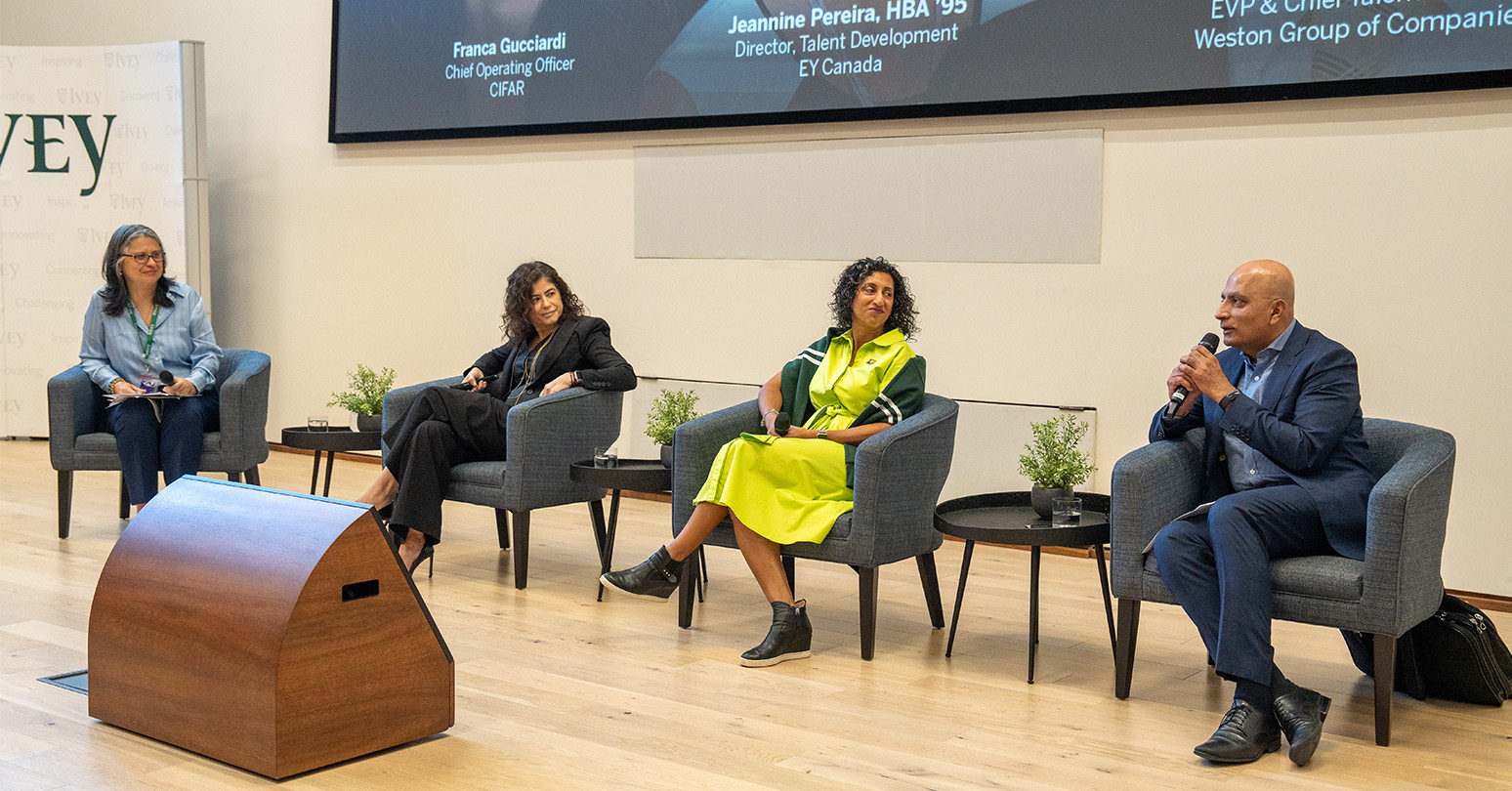She pushed through post-traumatic stress disorder after a near-fatal stabbing, racism and intolerance as an Indigenous woman in sport, and a high-profile legal battle challenging a mixed-race ban that forbade her from living in her home community with her husband. And Waneek Horn-Miller stands stronger than ever because of it.
Weaving together stories of triumphs and falls, Horn-Miller, a Mohawk woman renowned both for being an Olympic water polo player and for being stabbed by a soldier at age 14 during the 1990 Oka Crisis, attributes resilience and bravery, along with being raised by a strong mother, to her success.
“Every time I fell on my face, I learned something and I never stayed down. I was tougher and I was stronger and I was more resilient – and that’s kind of been my walk in life,” she said. “You have to have courage – bravery – so that, when a door opens a crack, you can overcome your fear and thrust your way in.”
A day dedicated to students’ development as leaders
Horn-Miller shared her story of perseverance with Ivey’s HBA1 students at HBA Leadership Day on September 5, which was hosted by the Ian O. Ihnatowycz Institute for Leadership. In addition to Horn-Miller’s address, the students participated in mini-case discussions and heard from a panel of leaders about their experiences and learnings. The panel included Franca Gucciardi, Chief Operating Officer of CIFAR; Jeannine Pereira, HBA '95, Director of Talent Development at EY Canada; and Rashid Wasti, EMBA '03, EVP & Chief Talent Officer, Weston Group of Companies. The day included an optional Leadership Café where the students could participate in Q&A-sessions with some of the speakers.
Horn-Miller discussed how she developed her character from the many trials she faced in life, pushing through setbacks to model strength for her four-year-old sister, who was in her arms during the Oka Crisis stabbing. Her sister, Kaniehtiio Horn, is now an actress and filmmaker who made her directorial debut at the recent 2024 Toronto International Film Festival.
“I remember holding her in my arms and saying you can be anything you want … And I realized that if I quit, I was showing her how to quit,” said Horn-Miller. “There is always someone watching how you handle the hard times in your life … someone you will inspire.”
A decade later, Horn-Miller co-captained the Canadian women’s water polo team at the 2000 Olympics – and the success was even more rewarding in light of the challenges.
Rising from failure to success
“Success is never sweeter than when you’ve had a bunch of failures behind you. If you succeed on the first try, you don’t really have anything to compare it to,” she said. “There is a strong pull when you hit a failure … to quit – to do what’s easy … Talk yourself through because obstacles are a natural part of success.”
Horn-Miller shared how her mother, Kahn-Tineta Horn – a Mohawk political activist and former fashion model who has been a spokesperson for Indigenous and women’s issues since the 1960s – demonstrated the power of their “warrior culture,” and fighting for what matters to you. She told how her mother once let rats loose during a meeting with Jean Chrétien, then Indian Affairs Minister and later Canada’s prime minister, to demonstrate the poor living conditions at the Kahnawake First Nations reserve. In addition to encouraging her to cherish her independent thought and stand behind it with confidence, Horn-Miller said her mother created a safe environment for her to dream as big as possible.
“My mom taught me that our concept of leadership is a bit different than a Western concept of leadership, which (Western leadership) is very much like a pyramid, where you are a CEO or own a company [at the apex] and you have a lot of influence over a lot of people. A powerful Indigenous person is someone who empowers other people to be powerful and stands alongside them,” she said. “Some of our greatest leaders are the people that never get any recognition. They work in the trenches, they show up every day, they empower people around them – and they lead.”
Building a proud legacy one action at a time
Striving to always live up to those standards, Horn-Miller has since been a motivational speaker, sports commentator, the host and star of Working It Out Together on APTN, brand ambassador for Manitobah Mukluks, and part of CBC’s 2024 Olympic Primetime Panel, among other things. It’s all part of her mission to create a legacy she can be proud of, and she encouraged the students to do the same.
“When navigating the business world, understand that people are always watching. Think about your values and put them first and you will be successful,” she said. “You have a chance to create a legend that will be told through the ages and I want to encourage you to make that legend full of amazing, happy, brave acts of humanity – of kindness. Go into this world to leave your stamp and be someone who can inspire others.”
Photo below – L-r: Dusya Vera, PhD '02, Executive Director of the Ihnatowycz Institute, with panellists Franca Gucciardi, Jeannine Pereira, and Rashid Wasti. 



